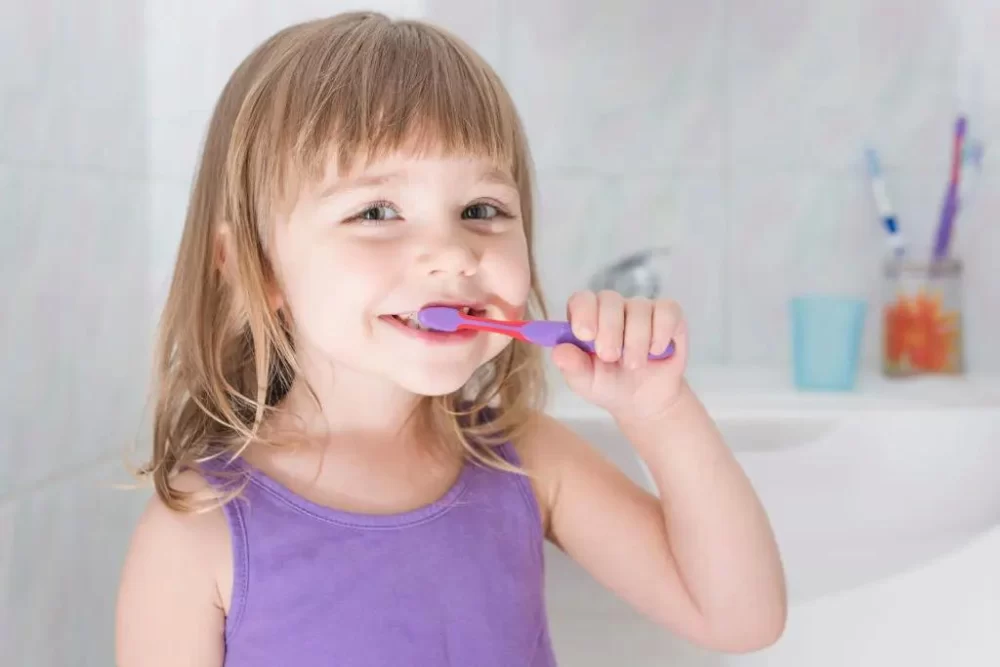
How to Teach Kids Proper Brushing Techniques: A Parent's Guide to Healthy Smiles
As a parent, ensuring your child has a healthy smile is one of the most important tasks. Teaching kids proper brushing techniques may seem simple, but it plays a crucial role in their dental health. If you're struggling to get your little ones to brush their teeth properly, you're not alone. Many parents face this challenge, but don't worry — I’ve got some practical tips and fun ways to make the experience both enjoyable and effective!
1. Start Early to Build Good Habits
When it comes to dental hygiene, the earlier you start, the better. I remember the first time I tried to introduce my toddler to brushing. It was a mess! Toothpaste everywhere, and he just wanted to chew on the toothbrush. But I knew that starting early would make the process easier in the long run.
Even before your child's first tooth appears, it’s good to gently wipe their gums with a soft, damp cloth after feeding. Once teeth come in, introduce a soft-bristled toothbrush and a small amount of fluoride toothpaste. This helps your child get used to the idea of brushing and sets the stage for lifelong oral health habits.
2. Make Brushing Fun with a Routine
Let’s face it: kids don’t always understand the importance of brushing their teeth. But they love routines and fun! I found that turning brushing into a game worked wonders. You can try brushing together, letting your child pick out their toothbrush, or using fun toothpaste flavors to make it more exciting.
One trick I use is playing their favorite song while brushing. I’ll tell them, “Let’s brush until the song ends!” This not only makes the process more fun but also ensures they brush for the recommended two minutes. There are also many apps and videos now designed to help kids learn how to brush, with engaging animations that keep them entertained while learning.
3. Demonstrate the Proper Technique
Children learn by imitation, so showing them the correct way to brush their teeth is vital. I remember the first time my son tried brushing on his own — he was so focused on scrubbing back and forth with no real technique. I demonstrated by brushing in gentle circles on my own teeth and explained why it's important to reach all surfaces of each tooth. Kids love to imitate what they see, so this simple step worked wonders.
Here’s a simple way to demonstrate it: Start by brushing the outer surfaces of the teeth in gentle circles. Then, show them how to brush the inner surfaces, and finally the chewing surfaces of the molars. Remind them to gently brush their tongue, too, to keep their breath fresh. Explain that brushing their teeth isn't just about looking good — it’s about keeping their mouth healthy and pain-free.
4. Encourage Independence, but Supervise
As kids get older, they’ll want to take over the brushing themselves. That’s a great sign! However, even if they’re ready to brush on their own, supervision is essential. I let my kids brush their teeth first, but then I always go back to check and finish up any areas they might have missed.
It’s normal for young children to struggle with brushing independently, and they may need help for a few years. Keep checking their teeth, and encourage them to do their best. Be patient and make sure they brush for the right amount of time, making the process less stressful by turning it into a fun, shared activity. Eventually, they’ll master it and gain confidence!
5. Explain the Importance of Dental Hygiene
As my children grew older, I made sure to explain why brushing is important. It’s not just about keeping their teeth clean; it’s about preventing cavities and gum disease. I told them stories about how sugar bugs (a.k.a. cavities) can make their teeth hurt if they don’t brush regularly. The idea of these “sugar bugs” made brushing seem like a mission — a fun way to “fight off” bad germs!
Even young children can understand the basics of dental hygiene if you frame it in a way they can relate to. You can tell them that brushing is like giving their teeth a special “shield” to keep them strong and healthy. The more your kids understand the ‘why’ behind brushing, the more motivated they’ll be to do it on their own.
6. Don’t Forget to Floss!
Brushing is essential, but flossing is just as important. I remember the first time I introduced flossing to my kids — they were a little unsure about it. But after showing them how floss works and explaining its purpose, they started to get excited about using it. Just like brushing, flossing removes food particles and plaque from between teeth, preventing cavities in areas your toothbrush might miss.
Start by using floss picks, which are easier for little hands to maneuver. Flossing can be a tricky habit to establish, but once kids see how much cleaner their teeth feel, they’ll want to make it part of their routine. You can even offer a reward system, where they earn stickers or extra playtime for flossing regularly.
7. Schedule Regular Dental Checkups
Regular dentist visits are crucial for your child's dental health. I make it a point to take my kids to the dentist every six months, starting from their first birthday. A pediatric dentist is specially trained to work with children, and they can offer valuable advice on proper brushing techniques and any areas of concern.
During these visits, my children feel comfortable asking questions and learning more about their oral health. The dentist’s office also gives them an opportunity to see dental tools up close and become more familiar with the process, making future visits less intimidating. The more involved kids are in their dental care, the more likely they are to keep up good habits at home.
8. Be Patient and Positive
As with any new habit, patience is key. Teaching your kids to brush their teeth properly may take time, and there may be some resistance along the way. But stay positive! Celebrate their efforts, even if they’re not perfect. Acknowledge their progress and encourage them to keep going.
Remember, every step you take to make brushing fun and engaging will pay off in the long run. Good oral hygiene doesn’t just protect your child’s teeth; it instills a healthy habit that will last a lifetime.







 Sangchi Tang, DDS5.0 (1 review)
Sangchi Tang, DDS5.0 (1 review) Jonesboro Pediatric Dental Group4.0 (77 review)
Jonesboro Pediatric Dental Group4.0 (77 review) Plymouth Greene Dental4.0 (263 review)
Plymouth Greene Dental4.0 (263 review) Children's Dental Associates4.0 (247 review)
Children's Dental Associates4.0 (247 review) Tigard City Dental5.0 (136 review)
Tigard City Dental5.0 (136 review) Beautiful Smilez Dentistry5.0 (14 review)
Beautiful Smilez Dentistry5.0 (14 review) The Importance of Oral Health Education During Pregnancy for a Healthy Pregnancy
The Importance of Oral Health Education During Pregnancy for a Healthy Pregnancy Best Tips for Brushing Your Teeth Properly for Healthy Gums: Essential Techniques for Oral Health
Best Tips for Brushing Your Teeth Properly for Healthy Gums: Essential Techniques for Oral Health Why Skipping Dental Checkups Can Lead to Bigger Oral Health Problems
Why Skipping Dental Checkups Can Lead to Bigger Oral Health Problems Advantages of Porcelain Dental Restorations
Advantages of Porcelain Dental Restorations How Can Diabetes Cause Tooth and Gum Problems? Preventing and Managing Oral Health Issues
How Can Diabetes Cause Tooth and Gum Problems? Preventing and Managing Oral Health Issues Healthy Habits for Promoting Good Oral Health and Hygiene: Tips for a Healthy Smile
Healthy Habits for Promoting Good Oral Health and Hygiene: Tips for a Healthy Smile